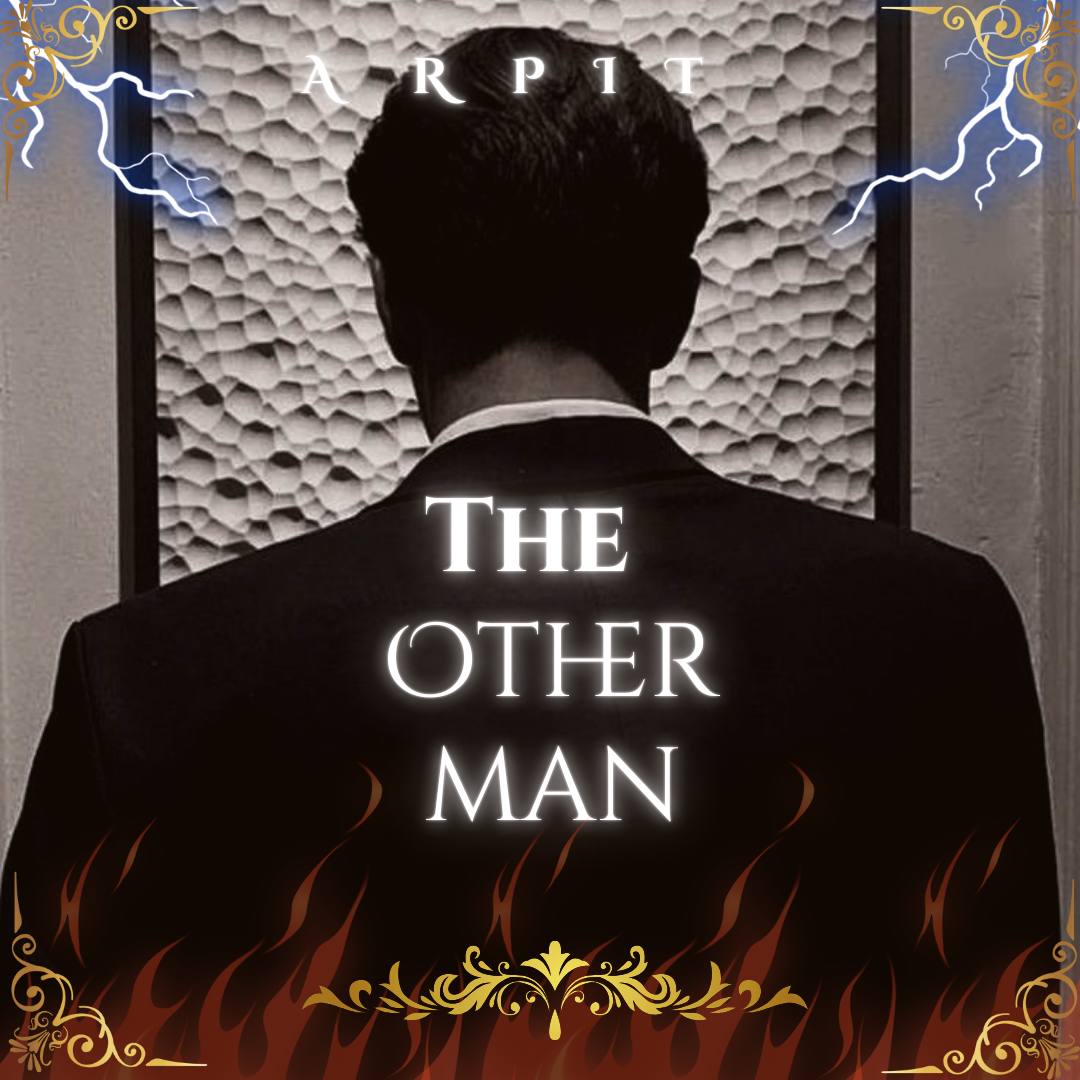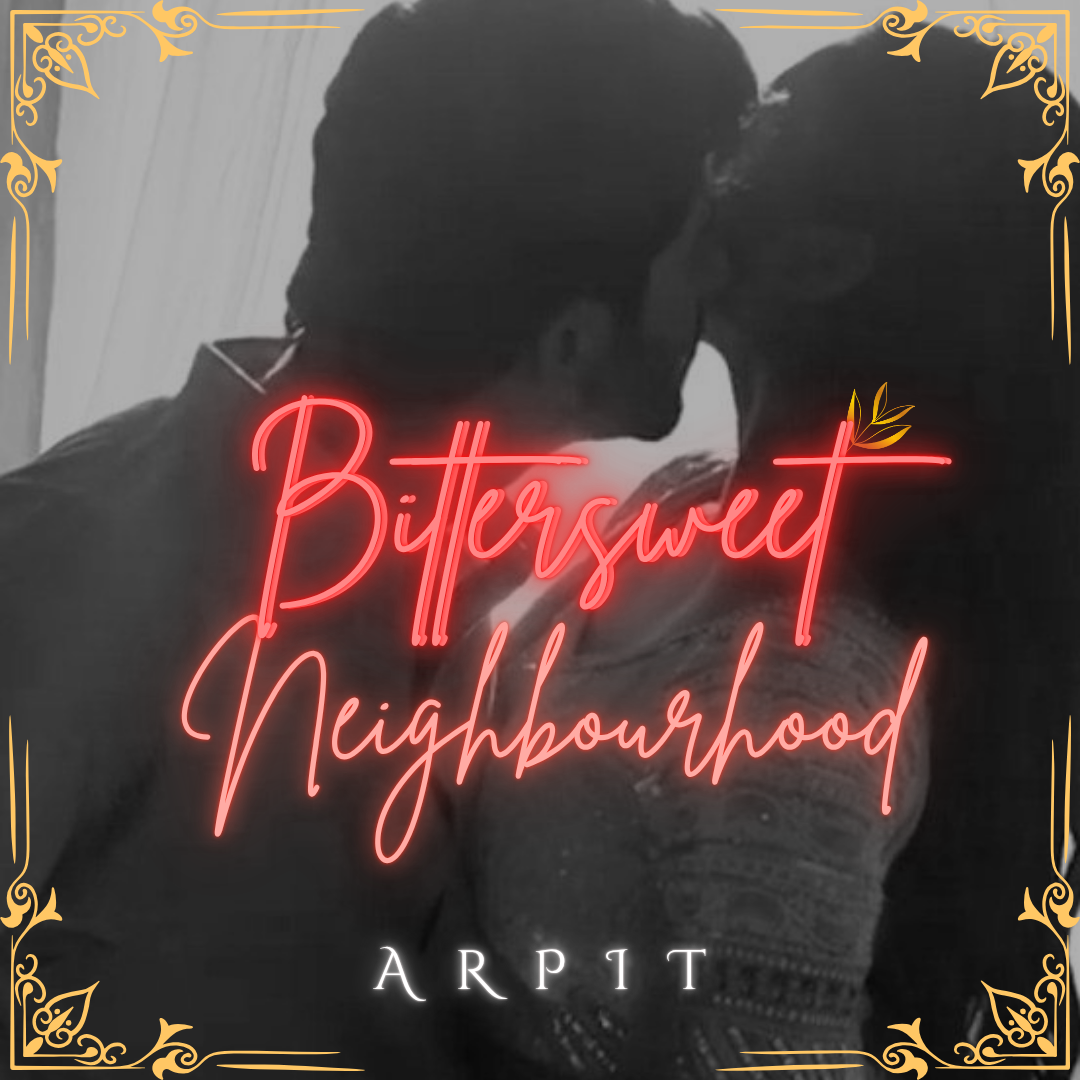

The sun had already started its harsh climb overhead by the time Manohar Bajwa and his younger brother Chandan rode into Rohariya village, a dusty settlement two hills across from their own. The road was cracked and narrow, flanked by dry fields and thorny bushes. A few boys watched their Jeep pass by, curiosity and suspicion in their eyes.
The Bajwa brothers weren’t just men—they were names. And names carried shadows.
They had come on business. Land business. A patch of disputed farmland near the border of the two villages—something Manohar had been eyeing for a long time. He had paperwork, loopholes, and influence on his side.
Or so he thought.
As they stepped out of the vehicle near the village square, a group of five men approached—gritty, sun-tanned, with gamchas tied around their necks and sickles hanging from their hips.
One of them, stocky and middle-aged, stepped forward, eyes fixed on Manohar.
"Yeh zameen tum log ke naam pe kaise ho sakti hai?"
("How can this land be in your name?")
Manohar kept his face unreadable.
Before he could respond, Chandan stepped forward with his usual cocky smirk.
"Tera kya jaata hai be? Humara naam suna hai kabhi? Jyada bakwas ki to zameen bhi yahin rahegi aur tu bhi."
("What’s it to you, huh? Ever heard about us? Talk too much and you’ll be buried in this land.")
The group immediately stiffened. A few of them moved their hands to their waists. The mood shifted—from curiosity to danger.
But before things escalated, Manohar raised a hand. Calm, controlled, but firm.
"Shant ho ja, Chandan. Yeh unka gaon hai. Unki zameen. Hum mehmaan hai yahan."
("Calm down, Chandan. This is their village. Their land. We are guests here.")
Chandan clenched his jaw but stepped back.
The stocky man wasn't done.
"Tum log mehmaan nahi ho. Tum log jhoothe kagaz le ke zabardasti karne aaye ho. Tumhare jaise log har jagah dikhte hain—dhamki deke, paisa leke sab kuch apne naam karna chahte ho."
("You’re not guests. You’ve come with fake papers, trying to grab land by force. People like you are everywhere—using threats and money to claim what isn’t yours.")
The crowd that had started gathering murmured in agreement.
And just when it seemed the Bajwas might be asked to leave forcibly, a voice rose from the far side of the square.
"Bas karo, Ratan."
("That’s enough, Ratan.")
All heads turned.
A man in his early forties, with salt-and-pepper hair and a long kurta, stepped forward. His eyes were quiet but commanding. A faded scarf was wrapped around his shoulders, and his hands were folded behind his back.
He walked toward them slowly and stopped beside Manohar.
"Yeh hamare mehmaan hain. Chahe hum unse sehmat na ho, lekin izzat dena humari zimmedari hai."
("They are our guests. Even if we don’t agree with them, it’s our duty to show them respect.")
The man named Ratan opened his mouth, but the man raised a finger gently—no aggression, but no room for argument either.
"Gaon ki maryada sabse pehle aati hai. Yeh baat yaad rakhna."
("A village’s dignity comes first. Remember that.")
Manohar turned slightly toward the man, eyes narrowing in interest.
"Aapka naam...?"
(Your name?)
The man gave a slight smile.
"Chirag Deshmuk . Mukhiya ka beta hoon. Mere Bapu sa ke death ke bad Gaon ke faisle aajkal main hi dekhta hoon."
( Son of the village head. After my Bapu’s death I look after village matters these days.")
Manohar gave a slow nod, extending his hand.
“It’s nice to meet you, Chirag ji.”
“I am happy to, Manohar ji.”
"Toh aaj hum aap ke mehmaan hain."
("Then today, we are your guests.")
“Ji bilkul.”
(Ofcoure…ofcource.)
Chirag spoke.
But there was something unspoken in his eyes—respectful, but guarded. As if he knew exactly what kind of men the Bajwas were.
The sun was now blazing high above, painting the Rajasthani landscape in a wash of gold and white. Heat shimmered off the narrow village road, and the air carried the dry rustle of neem leaves swaying in the occasional breeze.
Akhand had been driving for nearly half an hour, his eyes scanning the dusty surroundings for the location Sahil had mentioned over the phone—a vague, lazy drawl through the line.
“Saheri Babu, meet me at this location and Don’t worry, everything’s set.”
The word “set” from Sahil’s mouth somehow didn’t reassure Akhand.
Still, he turned the jeep off the main trail, its tires crunching over gravel and dried grass. In the distance, he spotted it—a wide peepal tree, its roots knotted like ancient fingers gripping the earth, near a dried-up riverbed that only saw water during the monsoons.
And under that tree stood Sahil.
Leaning against his motorbike, one foot crossed over the other, a cigarette hanging from his lips, and a half-circle of three other men—his so-called “friends”—sitting around on stones and old sacks. They looked up as the jeep pulled in, the music from someone’s speaker low but pulsing.
Sahil grinned and flicked the cigarette away.
“Aaya gaya shehri babu,” he called out.
(“The city gentleman has arrived.”)
Akhand stepped out of the jeep, eyes quickly taking in the setup. These weren’t friends. They were lookouts. Tough, rangy, village boys who knew how to wield sticks and silence.
Still, Akhand didn’t let it show. He approached slowly, hands in pockets, confidence intact.
“Yeh jagah tumne milne ke liye chuni?”
("This is the place you picked for a meeting?")
Sahil shrugged. “Shaanti hai yahan. Koi sunta nahi. Aur koi poochta nahi.”
("It’s peaceful here. No one listens. No one asks questions.")
He gestured for Akhand to sit on an old tire beside him. Akhand declined with a look and remained standing.
“Tumne bola tha kuch papers dikhane hain?” he asked, getting straight to the point.
("You said you had some papers to show?")
Sahil pulled out a folded cloth bag from his bike’s side pocket and casually tossed it onto a flat stone.
“Ye raha. Apki maa ke naam ki registry ki nakal… aur ek purana patwari record bhi.”
("Here it is. A copy of the land registry in your mother’s name… and an old land officer’s record too.")
Akhand bent down, picked up the bag, and pulled the papers out carefully.
Faded ink. Handwritten notes. Government stamps. There was something strange—the registry was incomplete, ending in a half-sentence. The Patwari record mentioned a transfer—but not to his mother. It mentioned a "temporary possession under Bajwa family trust."
His jaw tightened.
“Yeh kya hai? Tumne bola tha zameen meri maa ke naam pe hai.”
("What is this? You said the land was in my mother’s name.")
Sahil looked at him with a lazy smirk.
“Hai... thi. But kahani lambi hai, bhai. Apki maa ke naam pe tha, par baad mein kuch hua. Abhi tu aaya hai, toh sach samajhne ka time hai.”
("It is… was. But it’s a long story, brother. It was under your mother’s name, but something happened later. Now that you're here, it’s time to understand the truth.")
Akhand narrowed his eyes.
“Aur woh sach tumhare paas kaise aaya?”
("And how did you come to know the truth?")
Sahil chuckled, then leaned forward, lowering his voice.
“Maybe i look little drunken,But my ears and eyes still work.i got to know from my trusted man. And if you are behind my land then Saheri Babu you should stop right now other wise. For a second i may leave you but my father he will burn you alive..!!”
There was a moment of silence. The other men stared at Akhand, waiting.
Akhand looked down at the papers again. Something told him this was only a piece—the truth was deeper, and Sahil was just giving him a taste.
He folded the papers and slid them into his bag.
Akhand turned and walked back to his jeep without another word.
As he drove off, dust swirling behind him, Sahil watched silently, a strange gleam in his eyes.
“Game shuru ho gaya hai,” he murmured to himself.
("The game has begun.")
The stone walls of Bajwa Haveli were slowly absorbing the late afternoon heat, casting long shadows across the marble courtyard. Inside, the air smelled of incense, turmeric, and the heavy silence that always followed prayers.
Mughda stood at the angan, her palms joined before the small temple set into the wall. A brass lamp flickered beside her, the soft chant of a bhajan slipping from her lips.
Her head was uncovered—a quiet defiance. Something her Bari Maa would have scolded her for had she been around. But right now, no one said anything. The guards looked away, pretending not to notice. The workers kept moving, silently.
But Sahil Bajwa saw it all.
He had just walked in through the side entrance, reeking of alcohol, cheap aftershave, and fury.
His boots clacked hard on the stone floor.
He saw Mughda, her eyes closed, lips moving in prayer—as if she belonged to a different world.
And something in him—twisted, insecure, territorial—snapped.
Before anyone could react, he stormed across the courtyard and grabbed her wrist roughly.
Mughda gasped, startled, the prayer plate falling from her hand with a loud clang, marigolds scattering across the floor.
"Bhai-sa! Chor dijiye mujhe!"
("Brother! Let me go!")
But Sahil’s grip only tightened.
“Sar pe ghoonghat nahi, sabke saamne angan mein khadi hai? Kaun seekha raha hai tujhe ye sab?”
("No veil over your head? Standing in the courtyard in front of all these men? Who’s teaching you this nonsense?")
She winced as he dragged her across the courtyard.
The workers froze. No one dared interfere—not with Sahil Bajwa, the son of Manohar, the mad dog with the father’s name.
He yanked her through the side corridor toward the kitchen, where the soft clatter of bangles and pots echoed. Inside, Kamini—Sahil’s mother—was rolling dough, and Kusum—Mughda’s mother—was slicing vegetables.
The moment they saw the two, Kamini straightened, her eyes narrowing.
Sahil shoved Mughda onto the floor, her elbow hitting the edge of the stone hearth with a sharp thud. She hissed in pain, her eyes shining with both hurt and humiliation.
“Yahi jagah hai teri! Rasoi! Char diwari ke andar! Bahar dikhne ki zarurat nahi hai!”
("This is your place! The kitchen! Within four walls! No need to be seen outside!")
Kusum gasped, dropping the knife.
“Sahil! Yeh kya kar rahe ho? Chhod do usse!”
("Sahil! What are you doing? Let her go!")
But Kamini held her back with a firm hand on her arm.
“Mat bolo, Kusum. Abhi nahi.”
("Don’t speak, Kusum. Not now.")
Sahil turned toward them, eyes bloodshot.
“Tum log hi bigaad rahi ho isse. Kal ko koi akeli mil gayi to naam badnaam karegi poore ghar ka!”
("You’re the ones spoiling her. Tomorrow if she’s found alone with someone, she’ll disgrace the whole family!")
Mughda, still on the floor, looked up at him—not with tears, but with burning eyes.
“Aap sab ke liye maryada rasoi tak simat gayi hai. Par mere liye... maryada ka matlab ghulami nahi hai.”
("For all of you, dignity ends in the kitchen. But for me… dignity doesn’t mean slavery.")
For a second, the room went silent.
Sahil stared at her like he didn’t recognize her. Kamini smirked. Kusum turned her face, swallowing a sob.
But instead of raising his hand again, Sahil stepped back—something in her eyes unsettled him.
He muttered under his breath and stormed out, the force of his exit rattling a stack of steel thalis near the door.
Mughda sat there for a moment, breath uneven.
Kusumi finally knelt beside her, placing a wet cloth on her bruised elbow.
“Aurat ho ke sach bolti ho, Mughda... lekin is haveli mein sach bolne wali auratein zyada din tikti nahi.”
("You speak the truth as a woman, Mughda… but in this haveli, women who speak the truth don’t last long.")
Mughda looked at her quietly.
“Phir main unmein se pehli banungi jo tikegi.”
("Then I’ll be the first who does.")
The moment Mughda spoke—her voice low but laced with quiet defiance—Sahil’s face twisted in fury.
He turned back abruptly, jaw clenched, nostrils flaring, and raised his hand—ready to strike her.
"Zyada zubaan chal rahi hai ab tere mein!"
("You’re talking too much these days!")
But before the slap could land, Kusum stepped in between them, shielding her daughter with her body.
“Sahil! Haath neeche kar!”
("Sahil! Put your hand down!")
His hand froze mid-air, and for a second, even Sahil seemed unsure. But Kamini, standing with a rolling pin still in her hands, scoffed coldly from behind.
"Aurat hai… zyada padh likh gayi hai, isliye hawa mein ud rahi hai. Ghoonghat uthana, puja sabke saamne karna—yehi sab sikhaya hai tune, Kusum?"
("She’s a woman… educated a bit too much, now she’s flying in the wind. Lifting her veil, doing puja in front of men—is this what you’ve taught her, Kusum?")
Kusum turned to Kamini, her voice shaking but firm.
“Main uski maa hoon, jiji. Kya pehna hai, kahan jaana hai, kya karna hai—yeh sab main bataungi. Tum log nahi. Chhod do use!”
("I’m her mother, jiji. What she wears, where she goes, what she does—I will tell her that. Not you. Leave her be!")
Sahil’s hand slowly dropped to his side.
He gave Mughda a final glare and spat near the stove, muttering:
"Zyada sar pe chadha rahe ho isse. Kal ko haveli ka naam mitti mein milayegi."
("You’re putting her on a pedestal. One day she’ll drag the family name through the mud.")
Kamini gave Kusum a long look—more venom than words—and then followed her son out.
The clatter of their footsteps faded.
The silence left behind was almost louder than the shouting.
Mughda hadn’t moved from the floor. Her eyes were glazed, her hand still pressing against her bruised elbow. She looked not afraid—but shaken. Like someone who had seen this storm too many times and was tired of pretending it would pass.
Kusum knelt beside her.
Without a word, she wrapped her arms around her daughter, pulling her into a hug so tight that even the ache in her own bones was forgotten.
“Chup ho ja, bitiya… bas chup ho ja,” she whispered.
("It’s okay, my child… just hush now.")
Mughda closed her eyes and leaned into the only safety she knew.
In the quiet kitchen, the flame of the stove flickered weakly, catching the edges of spilled flour and a single teardrop on the stone floor.
The city buzzed around him as Akhand Pratap Chaturvedi drove through the crowded lanes of Jaipur, the chaos strangely comforting after the suffocating silence of the village.
He had left early that morning—no calls, no messages. Just determination burning in his chest.
He couldn’t trust anyone from the village.
Not after what he’d seen.
Not after what he’d felt in that village air—secrets buried under silence, and too many mouths speaking in whispers.
Especially not the Bajwas.
He had heard enough from the villagers—rumors of land-grabbing, shady dealings, sudden disappearances, and documents that “got lost” too conveniently. The Bajwas, they said, owned land that wasn’t theirs, wielding power not with law, but with fear.
But Akhand needed proof. Not gossip.
By mid-morning, he was inside the Jaipur District Land Records Office—a tall, aging building with dusty fans and the scent of old files.
He waited, leaning on the chipped counter, as a sleepy-looking clerk in khadi rummaged through a stack of files.
“Name?” the clerk asked, not even looking up.
“Ranjana Chaturvedi” Akhand said, clearly.
“My mother.”
The man blinked, paused, then walked into the records room. After nearly fifteen minutes, he came back with a thick file wrapped in red cloth.
He set it down, flipping through the brittle pages.
And there it was.
A plot number. A boundary map. A registry.
“Yeh zameen unke naam pe hai, sahab,” the officer confirmed.
("This land is in her name, sir.")
Akhand felt a surge in his chest—relief, pain, anger—all at once.
But the officer kept speaking.
“Lekin ek dikkat hai.”
("But there’s a problem.")
Akhand’s jaw tightened.
“Kya?”
("What?")
The officer pointed at a few dates on the registry.
“Zameen toh unke naam pe hai. Par jo original possession ka file hai... woh aapke paas nahi hai. Aur Bajwa parivaar ke paas us zameen ka physical possession bhi hai, aur kuch ‘secondary’ documents bhi.”
("The land is in her name. But the original possession documents—you don’t have them. And the Bajwa family has physical possession of the land… along with some secondary papers.")
Akhand narrowed his eyes.
“Fake documents?”
The officer hesitated, then nodded carefully.
“Main jhooth nahi bolunga. Paper kaafi purane hain. Shayad pressure mein banwaye gaye ho. Par jab tak aapke paas asli possession documents nahi hote… aap kuch nahi kar sakte.”
("I won’t lie. The papers are old. Maybe forged under pressure. But unless you have the original possession documents… there’s nothing you can do.")
Silence fell between them.
Akhand looked down at the file—the official proof that it was his mother’s land. Yet, he was the outsider. The land had been stolen in silence, and now it stood like a ghost between truth and power.
He clenched his jaw.
“Agar woh asli papers kahin hote… to kaunse office mein milte?”
("If those original papers still existed… which office would have them?")
The officer adjusted his glasses.
“Ya toh Purana Tehsil office mein… ya Patwari ke personal records mein. Lekin ek aur jagah ho sakti hai.”
("Either at the old Tehsil office… or in the Patwari's personal records. But there’s one more place it could be.")
Akhand looked up sharply.
“Kahan?”
("Where?")
The officer leaned in slightly.
“The Bajwa”
“Thank you.”
After that The ceiling fan above creaked lazily, scattering papers as Akhand stood at the dusty old registration office, flipping through land files and village records. The room smelled of ink, old paper, and dried sweat.
A man in his late fifties, dressed in a faded kurta-pajama, sat across from him, scratching his beard thoughtfully as he pulled out another register.
“Aap Bajwa parivaar ke baare mein pooch rahe ho?” the man asked, peering over his glasses.
(You’re asking about the Bajwa family?)
Akhand nodded. “Haan. Zameen ka kuch record dekhna tha… unka naam baar-baar aata hai.”
The man gave a short, dry laugh.
“Aata hi rahega. Poore ilaqe mein unhi ka raaj hai.”
(Of course it does. They rule this whole region.)
He leaned closer, lowering his voice like he was about to reveal a family’s hidden skeletons.
“Bajwa log sirf paisewale nahi hain… log unse darte hain. Darr banake rakhte hain logon mein. Aur sabse tez dimag? Manohar aur Chandan. Do bhai. Bahut chaalak hain dono, par Manohar toh alag hi kism ka hai.”
(The Bajwas aren’t just wealthy… they rule through fear. The sharpest minds? Manohar and Chandan. Two brothers. Both are cunning—but Manohar, he’s on another level.)
Akhand stayed quiet, listening.
The man pulled out a newer file, tapping it.
“Manohar ki patni ka naam Kamini hai. Naam jaisa hi swabhav—kamini. Bahut hi matlab ki aurat hai. Har baat mein faayda dhoondhti hai.”
(Manohar’s wife is named Kamini. And just like her name, she’s dangerous. Extremely selfish—always looking for profit in everything.)
He chuckled, then softened a bit.
“Chandan ki patni Kusum… woh alag hai. Chup rehti hai. Zyada bolti nahi. Saaf-dil aur bholi lagti hai.”
(Chandan’s wife, Kusum… she’s different. Quiet. Doesn’t speak much. Seems innocent and simple-hearted.)
Akhand narrowed his eyes slightly.
“Bachche?”
The man nodded, flipping another page.
“Manohar ka beta hai—Sahil. Akad se chalta hai, baap pe gaya hai. Aur Chandan ki ek hi beti hai—Mugdha. Uske liye ladka dhoond rahe hain abhi.”
(Manohar has a son—Sahil. Arrogant, just like his father. And Chandan has one daughter—Mugdha. They’re currently looking for a groom for her.)
Akhand leaned back in his chair, piecing together the puzzle.
The land. The sudden marriage proposal. The silence behind Kusum’s eyes. And now this.
He smiled faintly.
“Toh Bajwa parivaar mein sab kuch sulajha hua dikh raha hai... par andar se kaisa hai, yeh toh abhi pata chalega.”
(So the Bajwa family looks settled from the outside… but what it’s really like inside, that’s what I’m going to find out.)
.
Manohar and Chandan rode their jeeps up the dusty path leading to Chirag’s haveli. The sprawling sandstone mansion stood like a lion against the bright blue sky, its jharokhas and carved balconies whispering tales of old royalty and silent tragedies. The air smelled of marigold, dust, and slow-burning incense.
The heavy wooden gates creaked open, revealing a courtyard alive with movement—servants carrying steel trays, the clink of chai cups, the faint strains of a folk song playing on the radio.
A tall woman stood at the top of the steps—eyes sharp like kohl-lined daggers, spine straight as a sword. Her saree was a regal maroon with gold thread work, her silver-streaked hair tied into a tight bun. She wasn’t the kind of woman who entered a room—she claimed it.
“Meet my Maa sa.”Chirag said.
“I have some work you guys please seat.”Saying this Chirag went inside.
“Nameste ?” she said, her voice rich with authority, softened only slightly by a Rajasthani lilt.
“Main Lajavanti Deshmukh hoon. Swāgat hai aap sab ka.”
(I am Lajavanti Deshmukh. Welcome to you both.)
Manohar folded his hands respectfully.
“Shukriya, Bai sa .Bahut shubh lag rahā hai yahāñ āke.”
(Thank you, Bai sa .It feels very auspicious to be here.)
Lajavanti’s eyes scanned them with quiet calculation. Then, a faint, polite smile crossed her lips.
“Hamāre Chirag ek ache ladke hain,” she said, leading them through carved archways and across cool marble floors.
(Our Chirag is a good boy.)
“Par bhagwān ne kuch aur hi likhā tha uske liye... Pehli bahu... uski maut ho gayi thi, jab bacha paida ho rahā thā. Sirf chhe mahine hue hain.”
(But God had written something else for him… His first wife… died while giving birth to their child. It’s only been six months.)
Chandan lowered his eyes out of respect.
“Dukh hua sunke.”
(I'm sorry to hear that.)
Lajavanti nodded—her voice steady, yet wrapped in a mother's firm resolve.
“Tab se... shaadi ke liye mana kar rahā hai. Par ek maa ke liye... ghar ke chulhe ko jalaaye rakhne ke liye... ek bahu to chahiye hi, na?”
(Since then, he’s refused to marry. But for a mother… to keep the household running… a daughter-in-law is necessary, no?)
As they settled into the drawing room—cool despite the harsh desert heat—silver trays of cardamom chai and hot kachoris were laid out. But the air carried more than aroma and comfort—it held expectations.
Then, the sound of leather jootis echoed through the hall.
Chirag entered.
“Phir se wahi shaadi ki baat?”
(Again with the marriage talk?)
Lajavanti turned, her bangles clinking as she stood taller.
“Arey to main maa hoon ki nahi?” she snapped.
(Am I a mother or not?)
“Ghar mein chhoti bachhi hai, poori zindagi usko baap aur maa dono ban ke kaise sambhaloge, bol? Bahu chahiye iss ghar ko, samjhe?”
(There’s a little girl in this house—how will you raise her being both father and mother all your life? This house needs a daughter-in-law, understand?)
Chirag gave a dry, bitter smile and dropped into a nearby chair. He rubbed his forehead.
“Toh theek hai, kar lo shaadi meri,” he said with heavy sarcasm.
(Fine then, go ahead and get me married.)
“Lekin maa... dulhan milegi kahan? Bazaar mein milti hai kya? ’”
(But mother... where will I find a bride? Do they sell them in the market?)
Silence.
Even Manohar and Chandan looked away, saying nothing.
Lajavanti took a breath, but her eyes never wavered.
“Ladki milegi... bas bharosa rakho. Zindagi rukti nahi hai, beta. Tere liye ek nayi shuruaat likhi gayi hai. Tu dekhta reh.”
(You’ll find a girl… just have faith. Life doesn’t stop, son. A new beginning has been written for you. Just wait and see.)
Chirag looked away, his eyes are dark.
Chirag closed his eyes and remember how his relationship with his first wife.
Chirag closed his eyes and remembered how his relationship with his first wife had begun to rot long before it ended.
“Sit here!!” he had barked, his voice echoing off the cold walls of their flat. Meera had flinched, clutching the edge of her dupatta like it was armor. But she sat—obediently, silently—just as she always did.
He remembered how he would tower over her, how his words weren’t just harsh, but cruel. He never hit her, not with his hands, but his voice—sharp, cutting, relentless—had left bruises no one could see.
“Tumhare jaise bewakoof aurat ko toh main bardasht hi kaise kar raha hoon, samajh nahi aata,”
(I don’t even understand how I’ve been tolerating a foolish woman like you)
he had spat one night, the whisky on his breath mixing with the venom in his words.
She had stood there, silent. Silent in the way women often are when they’ve given up on being heard.
He’d told himself it was her fault—her meekness, her hesitation, her inability to match his fire. But in truth, it was something uglier: control. Power. The sick satisfaction of watching someone break beneath him.
His fists had never landed on her skin, but the slamming doors, the broken plates, the silence that followed—those were their own kind of violence. And she had endured it. For too long.
Manohar and Chandan exchanged another glance. They had come here for business—but they now stood at the edge of something far more delicate. Something ancient, like the walls of the haveli itself: duty, family, and the unfinished story of a man who hadn’t yet found his way back to hope.
Sneak peek- Chapter 11
“Aapko lagta hai main khush rahungi? Us aadmi ke saath jise main jaanti bhi nahi?”
(You think I’ll be happy? With a man I don’t even know?)
Kusum hesitated. Her eyes softened, but her voice stayed steady.
“Khushi... Mugdha, woh kisi bhi rishte mein pehle se nahi hoti. Banani padti hai.”
(Happiness... Mugdha, it doesn’t come ready-made in any relationship. You have to build it.)
She reached out and held her daughter’s hands tightly.










Write a comment ...